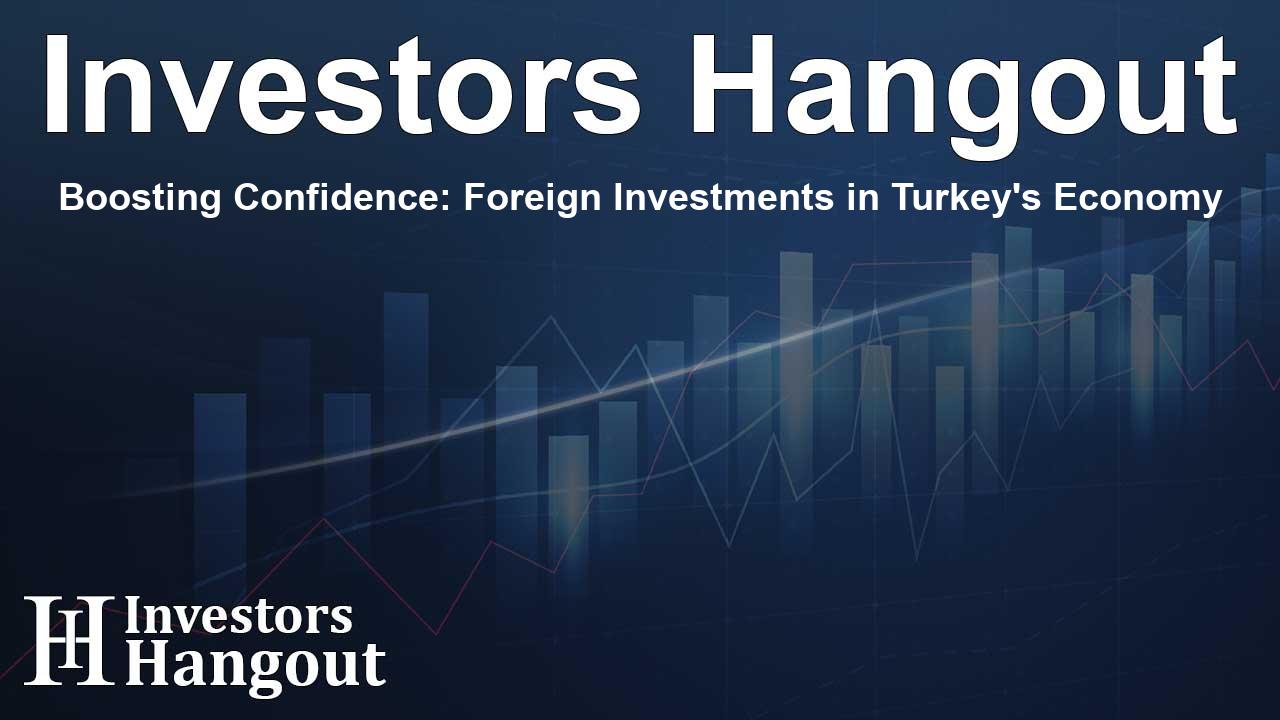Boosting Confidence: Foreign Investments in Turkey's Economy

Foreign Investments Flourish in Turkey's Economic Landscape
In recent months, Turkey has captured the attention of foreign investors, resulting in a significant influx of capital into its local debt markets. This surge is attributed to the nation's ongoing interest rate cuts and a decline in inflation, with expectations that improvements in the regional economic environment could further stimulate investments.
Key Drivers: Rate Cuts and Economic Recovery
The Turkish central bank has taken decisive action, recently reducing interest rates by 250 basis points to a substantial 45%. This marks the continuation of an easing cycle aimed at reversing years of escalating prices and a weakened currency. Following President Tayyip Erdogan's re-election and a shift towards more traditional economic policies, Turkey is once again a focal point for emerging market investors.
Positive Perception from Investment Leaders
Industry experts are witnessing notable gains in the Turkish economy. Nick Eisinger, co-head of Emerging Markets at Vanguard, emphasized, "Turkey is one of the bigger success stories in our space that we like. The reform narrative combined with the overall macroeconomic environment remains encouraging. There is still plenty of potential for growth ahead."
Robust Capital Inflows into Local Bonds
Recent data reveals that local bonds attracted $1.24 billion in foreign investments within just a week. This influx is the largest seen in two months, with total foreign capital invested reaching approximately $1.9 billion in 2025 alone. Currently, foreign investors account for over 10% of Turkey's government debt, a significant increase from just 1% in 2022, although still trailing the highs of 25% recorded before the lira crisis in 2018.
Lessons from Economic Challenges
Turkey's economic revival follows a tumultuous period characterized by unconventional fiscal strategies that led to rapid growth but also painful consequences. The nation faced substantial inflation rates, peaking at 85% in 2022, leading to considerable investment losses. Despite these challenges, Turkey has emerged as a resilient player in the global economic sphere.
The Impact of Easing Inflation and Positive Trends
The landscape is starting to favor investors again, as evidenced by the activities of Amundi, the largest asset manager in Europe, which has entered the domestic bond market. Yerlan Syzdykov, their global head of emerging markets, stated, "We have a favorable view of Turkey from a local currency standpoint. The recent decrease in inflation, recorded at 44.38% annually in December, correlates with the country’s manageable balance of payments situation, allowing for a more stable currency environment. We believe the rate of disinflation will outpace devaluation in the near future."
Future Projections: Continued Rate Cuts
Market analyses indicate that the central bank is likely to pursue further reductions, projecting a key interest rate of 30% by year-end. The central bank anticipates that inflation will decrease to around 21% over the same period. Analysts remain optimistic that Turkey’s potential for economic growth will remain bolstered by recent regional developments, notably the changing dynamics in the Middle East.
Regional Developments and Their Potential Boost for Turkey
Recent geopolitical shifts, including the ousting of Syrian President Bashar al-Assad and a ceasefire agreement in Gaza, may benefit Turkey’s economy significantly. Magda Branett, head of emerging markets and Asian fixed income at AXA, remarked, "The ongoing situations in the Middle East present fruitful opportunities for Turkey. The nation is likely to play a substantial role in the reconstruction efforts both in the region and in Ukraine, which serves to enhance its growth and fiscal outlook greatly."
Challenges in Attracting Major Developed Investors
Despite positive trends, Turkey still has work to do to attract crossover investors, who are major players in the developed markets that often dabble in emerging opportunities. Many of these investors view Turkey as risky due to geopolitical tensions and institutional fragility, making them cautious in their approach to investing in the country.
Frequently Asked Questions
Why are foreign investments increasing in Turkey?
The recent interest rate cuts and easing inflation contribute to a more favorable investment environment in Turkey.
What actions has the Turkish central bank recently taken?
The central bank cut interest rates by 250 basis points to 45% to stimulate the economy and manage inflation.
What was the foreign investment trend in Turkey's bonds?
Turkey's local bonds saw $1.24 billion in foreign investments in just one week, the largest inflow in two months.
What factors may benefit Turkey's economy in the future?
Improving geopolitical conditions in the Middle East and potential reconstruction projects could positively impact Turkey's economic growth.
What are the existing challenges to attracting developed market investors?
Concerns about geopolitical risks and institutional stability continue to deter some major investors from entering Turkey's market.
About The Author
Contact Riley Hayes privately here. Or send an email with ATTN: Riley Hayes as the subject to contact@investorshangout.com.
About Investors Hangout
Investors Hangout is a leading online stock forum for financial discussion and learning, offering a wide range of free tools and resources. It draws in traders of all levels, who exchange market knowledge, investigate trading tactics, and keep an eye on industry developments in real time. Featuring financial articles, stock message boards, quotes, charts, company profiles, and live news updates. Through cooperative learning and a wealth of informational resources, it helps users from novices creating their first portfolios to experts honing their techniques. Join Investors Hangout today: https://investorshangout.com/
The content of this article is based on factual, publicly available information and does not represent legal, financial, or investment advice. Investors Hangout does not offer financial advice, and the author is not a licensed financial advisor. Consult a qualified advisor before making any financial or investment decisions based on this article. This article should not be considered advice to purchase, sell, or hold any securities or other investments. If any of the material provided here is inaccurate, please contact us for corrections.
